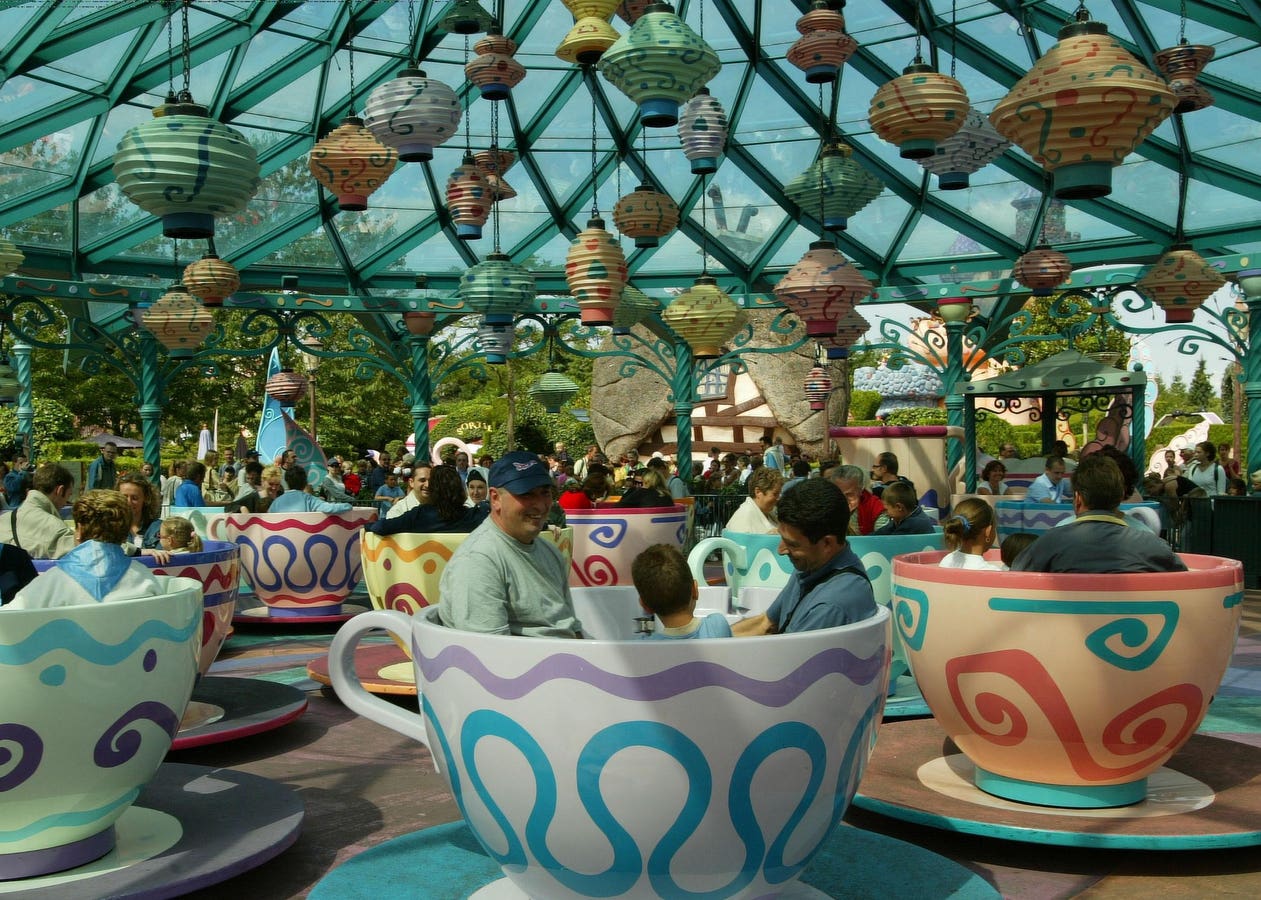Disneyland Paris has handed its staff a share of its $190.3 million (€175 million) profits as part of a generous package of benefits which was agreed after strikes gripped its two theme parks last summer.
Workers at Disney’s theme parks are known as cast members due to the role they play in a themed environment but the atmosphere at Disneyland Paris was anything but a fairytale in summer last year. A series of strikes through its two theme parks cast a dark spell on the resort with the crescendo coming in early June when protests from around 1,000 cast members led to the cancelation of the nightly fireworks show. A video of the aftermath taken by the DLP Report social media account went viral as angry guests could be heard booing when the show was canceled. Surprisingly, it had a magic touch.
Unions representing the 17,702 staff who worked for Euro Disney Associés (EDA), which operates Disneyland Paris, met with management three times in August and September to negotiate their pay for the following year. Amongst other benefits, the majority of the staff got a 5.5% pay rise as well as a bonus of $761 (€700), a transport subsidy of up to $1,305 (€1,200) and even reimbursement of 80% of their public transport costs. The profit share was the icing on the cake and was paid in January this year with $570.75 (€525) going to any employee who had worked for Disneyland Paris for at least three months.
It is a world away from the increase which was initially offered to their counterparts at Disneyland in California who have been negotiating a new pay deal with management for the past three months.
A pay rise was badly needed as a recent internal survey of union members reportedly found that 28% of cast members experienced food insecurity whilst 33% had faced housing insecurity in the past year and 42% had to miss work for medical treatment because they didn’t have enough sick leave. A staggering 64% said they spend more than half of their monthly paychecks on rent which is why they have been pushing for a pay rise.
According to Disneyland, starting hourly rates range from $19.90 to $24.15 which is slightly higher than the $18 paid to workers at Walt Disney World in Orlando but far from what is needed. A living wage calculator developed by the Massachusetts Institute of Technology shows that a single person with no children would need to be paid $30.48 an hour to afford to live near Disneyland. It is a long way off Disney’s opening offer.
In May, the Disney Workers Rising bargaining committee said that it had rejected an offer which would give staff “on average less than a dollar per year increase for five years. Our loyalty and longevity would be rewarded with only a 25 cent increase only for those who have worked for Disney for 20 years or more.”
Last week, four unions representing more than 14,000 cast members announced that their members have voted to authorize a strike if they didn’t get a more substantial pay rise. It clearly grabbed Disney’s attention as it has reportedly offered a $24-an-hour minimum wage for union members with hourly pay increasing by a dollar for the second and third year of the contract.
The workers will vote on Disney’s improved offer tomorrow though the generous package it hands to their counterparts in Paris may encourage them to push for a better deal.
A spokesperson for the UNSA, a French confederation of trade unions which worked tirelessly to negotiate the pay package, says that paying a profit share to the staff at Disneyland in California “would be more than fair. It’s the way you motivate and reward the cast members.” Getting it in Paris was far from child’s play.
The resort on the outskirts of the French capital is famous for its escapist environment but strikes have shattered the fantasy atmosphere in its two parks for the past 15 years. In 2009, on one of the busiest days for the flagship Disneyland Park, staff protested against a pay freeze causing the first-ever cancelation of the daily parade down its Victorian-themed Main Street.
It sparked three years of protests culminating in disruption during the festivities for the resort’s 20th anniversary in 2012. The ugly scenes were witnessed by celebrities including British broadcaster Jonathan Ross who Tweeted to his 4.9 million followers: “We are at Disneyland Paris for the 20th anniversary. There’s a dispute and strikers march down Main st. Worst Disney parade.” It didn’t fall on deaf ears.
At the time, Disneyland Paris’ parent company was listed on the Paris Euronext stock exchange with only 49% in Disney’s hands and the remainder owned by the public. As Disney didn’t own the resort outright it gave it loans rather than pouring money into it as it has done with its parks in the United States. The construction of the resort was funded with $1.9 billion (€1.7 billion) of bank borrowings and the finance charges on it led to the company making colossal losses.
Six months after the fateful day when the parade was canceled, Disney waved its wand and cleared the bank borrowings of its Parisian outpost. It replaced them with a low-interest loan but that was just the start. In 2014 this was followed up with a rights issue as well as a $652 million (€600 million) debt-for-equity swap. The final act came in 2017 when Disney took full control of Disneyland Paris putting it on a path to profitability.
Last year we revealed in the Sunday Times that in the year to October 1, 2022, EDA made a $51.1 million (€47 million) operating profit – its highest in a decade. It was driven by a sharp increase in revenue which hit a record $2.6 billion (€2.4 billion) and represented a staggering 78.8% of the total generated by Disney’s international theme parks. It didn’t just end up in Disney’s pockets.
“The profit share premium was first put in place in 2020,” says the UNSA spokesperson. “It takes into account operating income and customer satisfaction. If either or both of the requirements are met, the premium can increase.”
The CFDT, the majority union at Disneyland Paris, did not return a request for comment and Disneyland Paris did not provide an official statement on the payments.
The profit sharing agreement initially ran for three years with the final payment of $570.75 relating to the year to September 30, 2023 when Disneyland Paris’ operating income surged nearly four-fold to a record $190.3 million as we recently revealed in The Guardian.
However, just as the profit share was coming to an end, workers needed it more than ever. Runaway inflation in 2023 had led to the cost of electricity in France rising almost four-fold since Russia invaded Ukraine whilst flour, butter and eggs were about 50% more expensive.
In May last year, workers demanded a monthly wage rise of $217 (€200) as well as an increase to the bonus to long-serving staff and higher pay for working on Sundays. Management dug their heels in and the strikes erupted but the workers ended up with what they wanted.
It gives workers in California a higher target to aim for, especially as Disney’s US outposts generated a massive 70% of the revenue and 66% of the profit of its ‘Experiences’ division, which includes its theme parks and cruise line.
Experiences are propping up the bottom line of the media giant after its Disney+ streaming platform burned up more than $11 billion of losses. Combined with a decline in cinema admissions, it has led to the dominance of Experiences. Disney is doubling down on it by committing to invest $60 billion in the division over the next decade including building a $1.9 billion expansion to Disneyland.
Last year, Experiences accounted for just over a third of Disney’s overall revenue and more than two thirds of its operating income. Paying its workers more could take the sparkle off these profits so Disney has everything to play for.
Read the full article here





